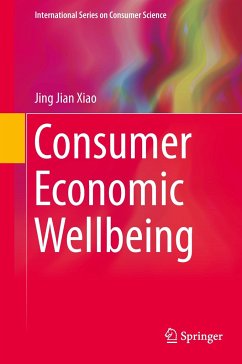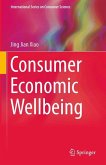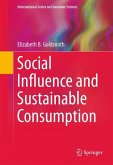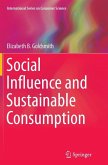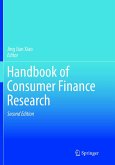This book focuses on the development of relevant theories and concepts that aid in predicting and modifying consumer behaviors. Consumer behaviors that help improve well-being, such as earning, spending, borrowing, and saving are also covered. In addition, the book discusses how to define consumer rights and responsibilities, and how individual consumers are organized to protect their own interests and to voice their concerns in public decision making processes. Finally, the book covers effects of economic environments on consumer well-being and how consumers can effectively deal with these challenges.
This timely text overviews theories, concepts, and contexts relating to the emerging field of behavioral economics. Research theories and data gathered across psychology, sociology, marketing, finance, and other relevant disciplines are synthesized to identify and elaborate on the defining aspects of consumer economic wellbeing. Against a background of consumer rights and responsibilities, the book discusses consumer phenomena of earning, spending, saving, and borrowing and their contributions to improving (and in some cases to worsening) economic wellness. In addition, the author presents effective ways consumers can be encouraged to navigate key economic environments such as the media, advertising, and the internet, and to change negative financial behaviors.
Among the featured topics:
Historical perspective on consumer economic wellbeing.Consumer financial capability and economic wellbeing.The role of government in promoting consumer economic wellbeing.Corporate social responsibility.Theories of online shopping and e-banking.Desirable and undesirable consumption behavior.
Consumer Economic Wellbeing clarifies issues and provides insights for researchers in the fields of consumer psychology and economics, psychologists and mental health professionals, and policy analysts. It is also useful as a text for college courses in related subjects.
This timely text overviews theories, concepts, and contexts relating to the emerging field of behavioral economics. Research theories and data gathered across psychology, sociology, marketing, finance, and other relevant disciplines are synthesized to identify and elaborate on the defining aspects of consumer economic wellbeing. Against a background of consumer rights and responsibilities, the book discusses consumer phenomena of earning, spending, saving, and borrowing and their contributions to improving (and in some cases to worsening) economic wellness. In addition, the author presents effective ways consumers can be encouraged to navigate key economic environments such as the media, advertising, and the internet, and to change negative financial behaviors.
Among the featured topics:
Historical perspective on consumer economic wellbeing.Consumer financial capability and economic wellbeing.The role of government in promoting consumer economic wellbeing.Corporate social responsibility.Theories of online shopping and e-banking.Desirable and undesirable consumption behavior.
Consumer Economic Wellbeing clarifies issues and provides insights for researchers in the fields of consumer psychology and economics, psychologists and mental health professionals, and policy analysts. It is also useful as a text for college courses in related subjects.

